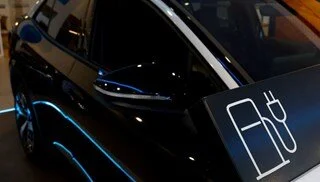China has officially lodged a complaint with the World Trade Organization (WTO) against the European Union (EU) for imposing additional tariffs on Chinese electric vehicles (EVs). This move marks a significant escalation in the ongoing trade tensions between the world’s two largest economies, particularly in the burgeoning electric vehicle sector.
The EU announced the new tariffs earlier this year as part of its broader strategy to protect its domestic automotive industry and promote sustainable transportation. The additional tariffs, which range from 10% to 15%, specifically target electric vehicles imported from China, making them more expensive and less competitive in the European market. EU officials argue that these measures are necessary to counteract what they perceive as unfair trade practices and to encourage local manufacturing of electric vehicles.
In response, China has criticized the EU’s decision, alleging that the tariffs are a form of protectionism that undermines free trade principles. Chinese officials argue that the EU’s actions are retaliatory and aim to stifle competition from one of the world’s leading electric vehicle producers. They contend that such tariffs not only harm Chinese manufacturers but also limit consumer choices and drive up prices for European consumers.
The complaint filed with the WTO outlines several key grievances. China asserts that the EU’s tariffs violate multiple WTO agreements, including those related to non-discrimination and fair competition. The Chinese delegation seeks the removal of the tariffs and compensation for the losses incurred due to the EU’s trade measures. Additionally, China is pushing for the establishment of a dispute resolution panel to address these issues comprehensively.
Trade analysts view this dispute as a pivotal moment for the global electric vehicle market. The EU is one of the largest markets for electric vehicles, and China’s dominance in EV manufacturing poses a significant challenge to European manufacturers. The imposition of tariffs could lead to a reshaping of market dynamics, potentially boosting local production in the EU while restricting the influx of competitively priced Chinese EVs.
Furthermore, this conflict highlights the broader geopolitical tensions between China and the EU, extending beyond trade to encompass technological leadership and environmental sustainability. As both regions strive to lead the global transition to electric mobility, the stakes are increasingly high, with each side aiming to secure its economic and strategic interests.
The WTO’s role in mediating this dispute will be crucial. The organization’s ability to enforce fair trade practices and resolve conflicts will determine the future relationship between China and the EU in the electric vehicle sector. Both parties have expressed a willingness to engage in negotiations, but the outcome remains uncertain as the WTO process can be lengthy and complex.
In the meantime, the automotive industry and consumers on both sides of the Atlantic are closely monitoring the developments. European manufacturers may ramp up their EV production to fill the gap left by reduced Chinese imports, while Chinese companies might seek alternative markets or innovate to maintain their competitive edge. The resolution of this dispute will have significant implications for the global electric vehicle landscape, shaping the future of sustainable transportation worldwide.




